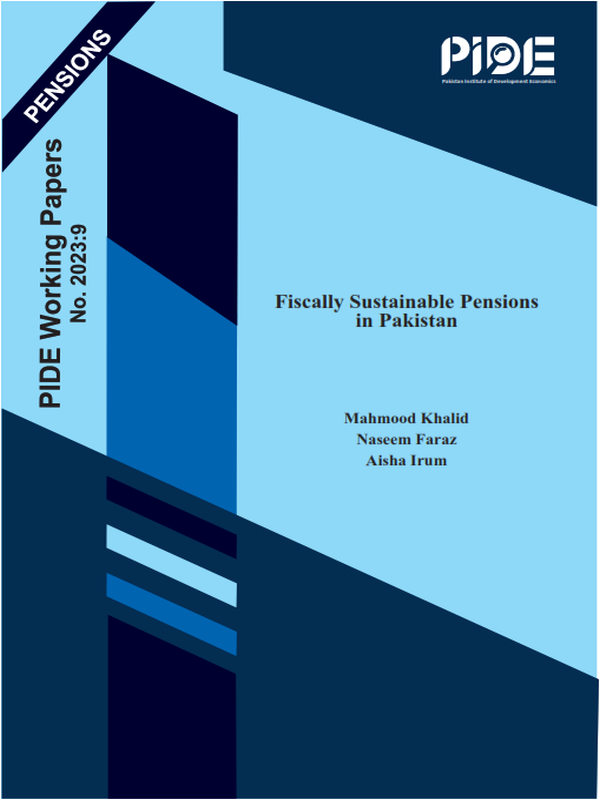Fiscally Sustainable Pensions in Pakistan
1. INTRODUCTION
Public sector employment remains an attraction for important reasons: job security and a guaranteed pension (Dixit, 2002). Most of the countries around the world have pension systems, intended to provide income support to those persons who have lost earnings either due to old age or disability due to some incident. Each pension scheme must result into adequate resource provision to meet the basic living standards and ensure that the gap between pre and post retirement earnings is minimum. This would help pensioners live a decent life. As ability to earn significantly reduces in post superannuation age. However, the responsibility for either forced savings or contribution by employers (including civil governments) depends on the type of pension scheme. Some argue that it’s either the sole responsibility of the individual through voluntary savings, the family through family support or the State which can create institutions as per need and sustainability of resources. However due to changing demographics in terms of an ageing population, weaker family support, increased health services and higher expected lives have created a need for policy response to be dynamic.
The evaluation of alternate pension systems has gained importance among the policy makers who are concerned about the increase in ageing population and rising poverty levels. Countries like Pakistan, face tight fiscal position in the presence of hovering pension liabilities. The Article-38 of the constitution of Islamic Republic of Pakistan 1973, pertains to “Promotion of Social and Economic wellbeing of the people”. This article has seven sub clauses and in each clause it is mentioned that the state shall take measures to secure the well-being of its people, provide all the citizens with the opportunities of work and adequate livelihood with reasonable rest and leisure, provide basic necessities of life such as food, clothing, housing, education and medical relief for all such citizens etc. The subarticle (C) states: “provide for all persons employed in the service of Pakistan or otherwise, social security by compulsory social insurance or other means.”
The same notion has been repeated in various Civil Service Reform Commissions as well; e.g. in the NCGR-2015 one of the broad principles for reforms included “Grant of a living wage and compensation package, including decent retirement benefits to all civil servants”. However, provision of such post-retirement facility needs a system based on sound financial appraisals taking into account the fiscal sustainability. Because any weakness in such program may result in outcomes which are undesirable. For instance, increasing the pension bill was cited as one of the reasons for governments moving towards contractual appointments (Chief Secretary Punjab stated and reported in NCGR Vol-II).
Pakistan has a Pay-As-You-Go type pension system, which is financed by tax payers’ money and it has resulted in building up of an unfunded liability for the government. Except for few departments rest of the expenditures on superannuation are voted and gradually coming into mainstream discussions on fiscal sustainability and public financial management. This requires increase in future taxes to be solvent. Pension has also never been counted in the total cost towards employees because of its non-contributory nature.




